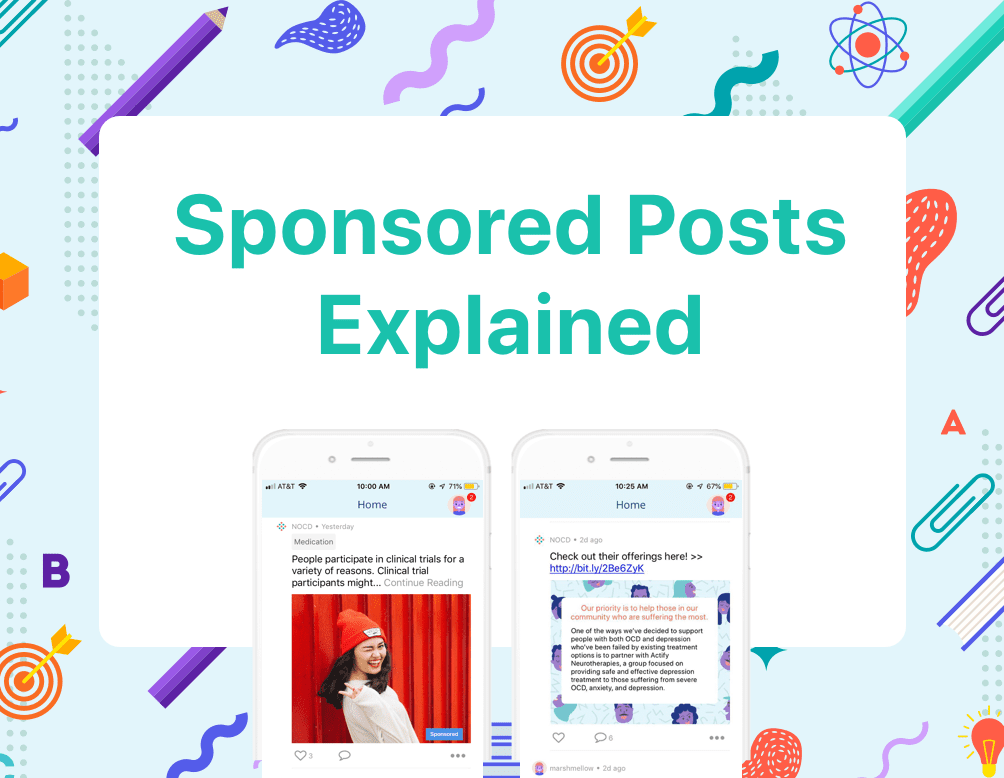OCD treatment has always been a bit of a maze. We know this because many of us at NOCD struggled to navigate the healthcare system for years before getting any better.
Today, research suggests most people with OCD are still navigating this maze. They’re not able to access specialists in exposure and response prevention (ERP), the most effective form of therapy for OCD, due to the high cost of ERP sessions, frequent misdiagnosis, and shortages of ERP providers. And many people with OCD are incorrectly prescribed medication by primary care physicians who don’t have a nuanced understanding of OCD.

Given these challenges, many people with OCD live in constant anxiety or go into free fall, causing them to drop out of school, lose their jobs, and withdraw from relationships. To make matters worse, the lack of support available throughout these intense struggles can increase the likelihood that people self-medicate with illicit substances, become severely depressed, or develop other comorbidities. It can rapidly develop into a cruel cycle.
Facing this string of issues, it’s easy to feel hopeless– but we shouldn’t. NOCD is committed to rapidly realigning the OCD treatment system, using a combination of technology and evidence-based clinical support to make care more effective and more widely accessible.
To start the process, we launched a free OCD treatment app with a built-in support community. The NOCD app helps people with OCD more easily understand ERP and start treatment down the best available path. After tens of thousands started using the app, we realized it was a one-stop solution for some of our members. But for those with more severe symptoms, it was only the start of their journey.

That’s why we recently introduced sponsored posts in the NOCD app: to help every one of our members find more robust care options around them, whenever and wherever a need arises.
We partnered with Biohaven Pharmaceuticals to help members who aren’t satisfied with their current treatment participate in clinical trials. As part of these trials, members may get free psychiatric evaluations. Getting to work with an experienced, innovative psychiatrist can be transformative.
To better support those with OCD and comorbid conditions like depression and substance use, we recently started working closely with two new partners:
Actify Neurotherapies offers additional treatment options for comorbid OCD and depression, including transcranial magnetic stimulation (TMS) and ketamine infusion– which involves supervised administration of low doses at one of their clinics. We’re helping our community learn about these options.
AMITA Health offers unique simultaneous treatment options for OCD, depression, and substance use, ranging from intensive outpatient programs to partial hospitalization and residential programs.
You’re probably wondering: but aren’t these partners paying you guys?
Yes, but that’s not why we promote them. We pass on most partnership opportunities because they won’t help us get our community members immediate help. We only promote companies that fulfill this purpose and are validated by our clinical team as excellent resources.

If your symptoms are severe and you’re looking for more comprehensive forms of care, some of the partners we work with today might be a great fit for you, a family member, or a friend. Others might not feel quite right (feel free to ignore them!). Later this year, we plan to start offering options for those seeking OCD-specific outpatient therapy and teletherapy.
On average, it takes 10-17 years for people with OCD to get better. We think we can do better. Let’s work together to make it happen.

